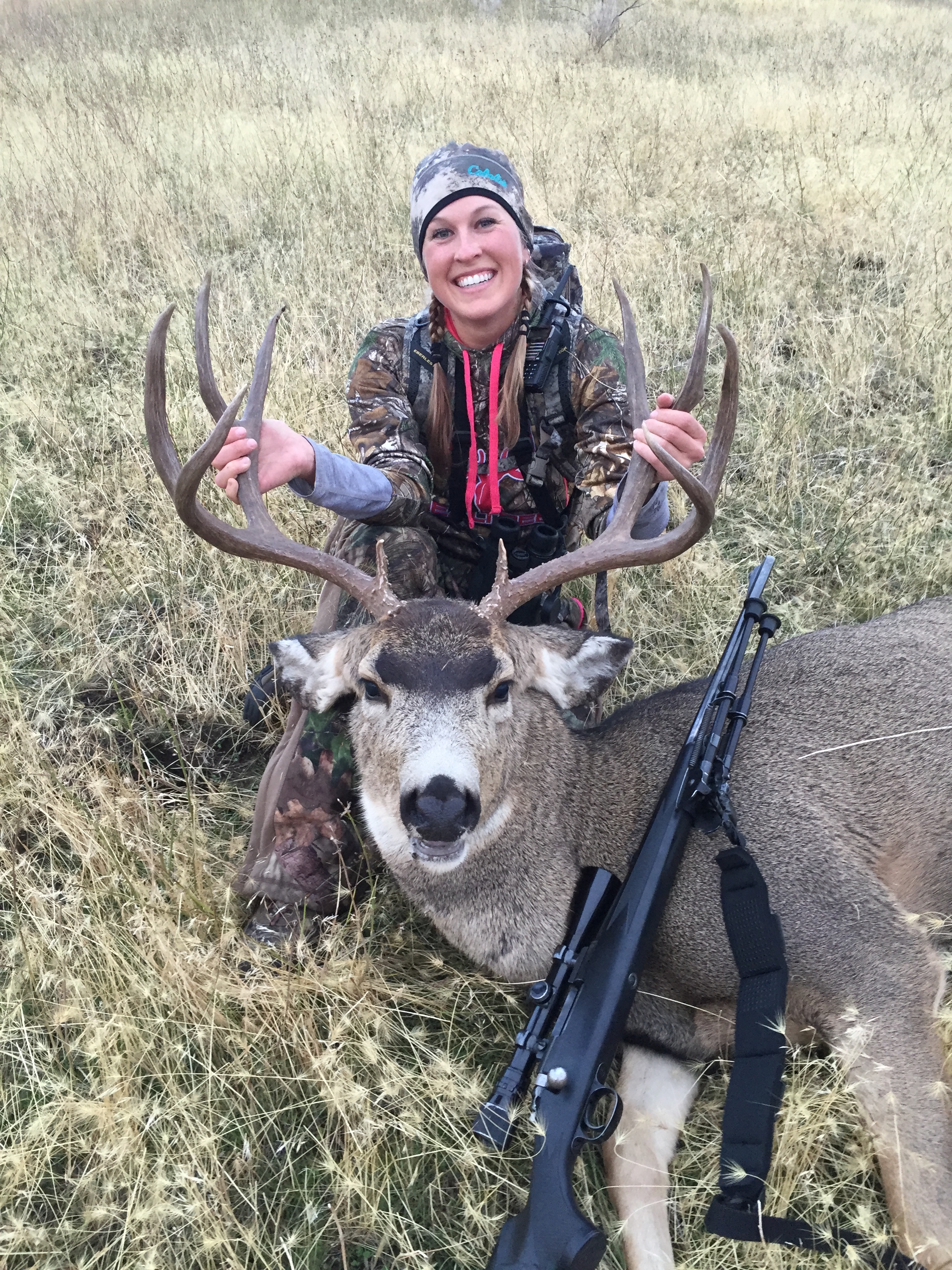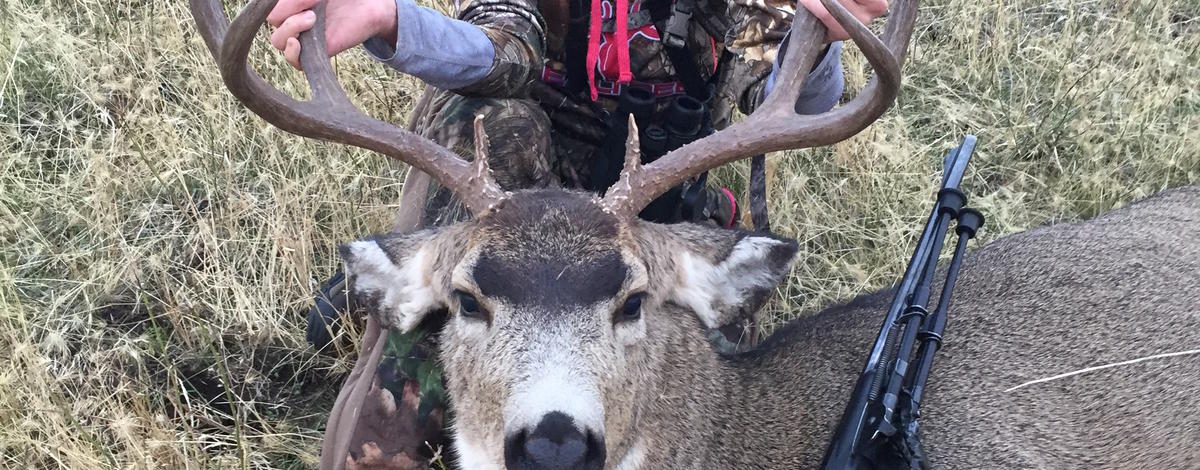Big-game hunting can be part euphoria and part heartbreak. We spend all year building expectations for the season and then sometimes feel the crush of disappointment when things don’t go as we hoped.
I wrote on several occasions about the bright outlook for this year’s big-game hunting season after last year’s all-time record white-tailed deer harvest and overall deer and elk harvests well above the 10-year average, so I was excited and optimistic about the season.
But after a week of deer hunting during a coveted controlled hunt, I left the woods with an unfilled tag. It provided a little unwanted introspection, and I did some cold, hard analysis about how I could have done better. Hopefully, other hunters can relate.
If you got an animal this year, congratulations. I know a lot of people did, and it’s great to see the photos of happy hunters. But if I had to give myself advice about what to do different next time, or not do, here’s what it would be:
Scout more: I only spent a weekend scouting a new hunting area that I was just vaguely familiar with, and I probably let the stats make me overconfident. The unit had about a 60 percent success rate last year. How could I go wrong? I know how to hunt mule deer. We saw bucks when scouting, so it was just a matter of closing the deal.
Wrong. It wasn’t that I didn’t see bucks during my hunt. I saw a bunch of them, but nearly all were inaccessible on private land. Was I bummed? Yep. But in hindsight, I should have seen it coming. When the deer got moved around by hunters, or just migrated, they sought refuge on private lands. Can’t blame them for that. Had I spent more time scouting, I probably would have had more options. Instead, I scrambled to find a new place to hunt midway through my season.
Be part of a team: This was probably my most glaring error. I applied for this hunt at the last minute and didn’t expect to draw it, but I did. That meant I mostly hunted alone because my hunting buddies were concentrating on their own hunts. Having partners not only makes a hunt more sociable, there’s help spotting game, getting it out of the woods, and I can return the favor when they get one. Lesson learned. When I apply for a controlled hunt in the future, my friends will be on the application with me.
Realize my limitations: I take pride that I hunt on foot, and I stay in good enough shape to take on some Idaho’s most rugged country, but I can only go so far, especially while hunting by myself. Some of the best hunting areas are in remote locations that are difficult to access. Some hunters put a lot of effort into reach those places with ATVs, horses, or backpacking. If I want those opportunities, I have to be willing to make a similar effort.
Don’t rely on past success: I had harvested a lot of deer in different parts of the state, so I assumed I had a good playbook when moving to a new area. I stubbornly continued doing some things that weren’t working, and I failed to adapt. Every year is a little different, and what works in one place won’t necessarily work in another.
Don’t set my expectation too high: I’ve definitely been guilty of it in recent years. The first buck I saw during my hunt was a young one, so I let it go. That’s in contrast to a friend of mine who typically takes the first legal buck he sees, even though he often sees larger bucks later in the season.
We debate this a lot, but he has filled his deer tag nearly every year that I haven’t. Do I regret letting all those young bucks slip away? Not really, but I can’t complain when I don’t fill my tag. I held out in hopes of something bigger, and it didn’t pan out, and I have to accept it.
Don’t get entitlement syndrome: This is one of the biggest mental challenges for me. I figure if I take a week and seriously hunt for a mature buck, I should be able to find one. It’s that stubborn insistence that’s made me successful in the past, but it also plants a seed in my brain that I deserve my desired outcome.
In reality, a lot of things are beyond my control, and there are no guarantees. Even if the majority of other hunters in my unit are successful, there’s no assurance I will be among them. It’s a bitter pill to swallow.
But the simple reality is the animals I hunt are trying to elude me, and they certainly don’t owe me anything. It’s up to me to find an animal and make a successful stalk. If I don’t, making excuses or blaming things beyond my control (weather, other hunters, private land boundaries, predators, etc.) is not going to change the outcome. Ultimately, it’s up to me to do my best and accept the results, even if they’re not what I wanted.
Don’t judge the whole hunt by the harvest: This can also be tough because hunters are very results oriented, and pretty sunrises don't garner many bragging rights. But there’s more to the hunt than the harvest, and I have to constantly remind myself of that. While I was hunting, I saw a variety of wildlife, and I had an amazing encounter with a mountain lion, which I will remember long after the bitter taste of eating a tag has dissolved from my memory.
Enjoy the success of others: Shortly after returning home, my smartphone beeped and a photo of Demeny May of Boise lit up my screen.

She was hunting with my buddy, Dave Heimer, and they hunted from sunrise to sunset before she killed a beautiful four-point mule deer in the waning moments of her season. It was her first-ever deer hunt, and she killed a buck I would have gladly tagged. I would be lying if I said there wasn’t a twinge of jealousy, but it quickly faded, and I shared her triumph.
“Thank you to this buck and Mother Nature for blessing us with all this meat that will feed us throughout the year,” she wrote.
It’s awfully hard to be jealous of that sentiment, and it’s better to collectively share the excitement and joys of hunting season, even if it includes an occasional heartbreak.

